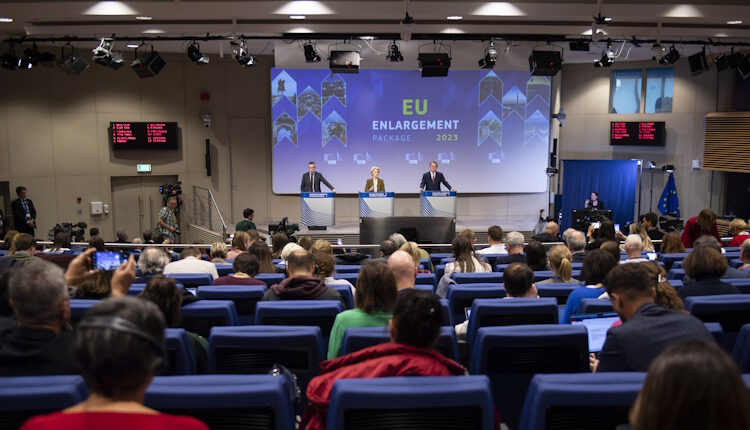
Similar to grants and cheap loans from the European Union’s Recovery and Resilience Facility for member states, the Western Balkans will be able to obtain EUR 6 billion from the new Growth Plan by fulfilling fundamental reforms.
The European Commission adopted the Growth Plan for the Western Balkans. It said the aim is to bring some of the benefits of membership to the region in advance of accession, boosting economic growth and accelerating socio-economic convergence. The beneficiary countries will need to step up reforms and investments to obtain EUR 2 billion in grants and EUR 4 billion in concessional loans.
The Reform and Growth Facility is proposed for the period 2024-2027. Not unlike the funds from the Recovery and Resilience Facility for member states, the Western Balkans must fulfill conditions to get grants and cheap loans approved.
Western Balkan countries will need to submit reform agendas with requirements for semiannual disbursements
First, the European Parliament and Council of the European Union need to approve the package. Western Balkan countries can then submit their individual so-called reform agendas laying out the socio-economic and fundamental reforms.
They will be based on recommendations including from the EU’s annual Enlargement Package and the countries’ economic reform programs. The reform agendas will be consulted with, assessed and adopted by the European Commission, similar to the national recovery and resilience plans (NRRPs) of the member states.
Serbia and Kosovo* need to engage constructively in the EU-facilitated dialogue on the normalization of relations as a necessary precondition, according to the announcement.
Von der Leyen: Growth Plan could double region’s economy within ten years
“This Growth Plan could double the economy of the Western Balkans in the next 10 years. With its combination of reforms and investments, it will allow the Western Balkan to benefit soon from key areas of our single market, including free movement of goods, services and workers, the single euro payments area, to transport, energy and the digital single market,” European Commission President Ursula von der Leyen said.
Economic integration with the EU is subject to the Western Balkans aligning with single market rules and opening the relevant sectors and areas to all their neighbors at the same time within a common regional market, the statement adds. It includes the integration of electricity markets, the possibility for integration of other energy markets and the sector’s decarbonization.
“This will take into account the need for an equivalent carbon price to the EU Emissions Trading System’s carbon price or the application of the Carbon Border Adjustment Mechanism to allow for the continued electricity market coupling from 2030 onwards. This will be done by implementing the existing Energy Community Treaty,” the European Commission explained.
At least 37% of grants must be spent on climate action
The plan is to provide loans of an overall EUR 3 billion directly to state budgets. The remaining EUR 1 billion in loans and EUR 2 billion in grants would come through the Western Balkans Investment Framework (WBIF) for transportation, energy, digitalization, education and skills development. At least 37% of the nonrepayable financial support channeled through the WBIF should contribute to climate objectives, the EU’s executive body pointed out.
If a Western Balkan country fails to meet an obligation, the funds will be redistributed among the other ones
Payments will occur twice a year. When a payment condition is not fulfilled in accordance with the indicative timeline from a reform agenda, the commission could withhold part or the entire funds corresponding to that condition. Beneficiaries will have one to two years to fulfill the conditions, otherwise the amount will be redistributed among the other ones in the subsequent years.
European Commissioner for Neighbourhood and Enlargement Olivér Várhelyi said the package builds on the EUR 30 billion Economic and Investment Plan, launched in 2020.
“As we accelerate the implementation of fundamental reforms, we will open our single market to the Western Balkans. This will decrease the economic divide between the European Union and our partners, and prepare them for the competition on the EU single market so they can reap the benefits of their EU membership from the first moment,” he stressed.
The average gross domestic product per capita in purchasing power terms in the Western Balkans is between 30% and 50% of the EU average.






